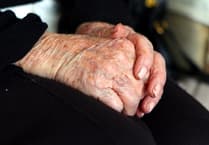THIS month marks ten years since the beginning of the end of a purpose-built cinema in Petersfield – demolition of the iconic Savoy began in May 2008.
That was 98 years after the Petersfield Electric Theatre, on the corner of Chapel Street and Swan Street, was opened in 1910.
In 1929 it was equipped with an Edibell sound system but it was closed in 1935 and demolished to build the Savoy cinema, with its fashionable Art Deco style interior and latest equipment, on the site, thanks to the ownership of businessman Hyman Filer, who came from Portsmouth.
At the opening, he said: “None will deny it its place in the social life of a growing community. The policy will be to provide first class entertainment in luxurious comfort and at popular prices.”
During the Second World War, the 700-seat cinema was a popular venue, keeping up people’s spirits and providing entertainment for residents, evacuees and troops on leave.
Hyman Filer’s sons, Solly and Horace, continued to run the Savoy after their father’s death and into its heyday in the 1950s, when shows changed three times a week.
Solly junior was also a member of Petersfield Urban District Council and its chairman from 1947-50. The brothers remained involved until 1978 when they sold it to Spedeworth International.
Despite the Savoy following the national trend of reducing audience numbers, the cinema continued showing films, although in the 1970s bingo was introduced on two nights a week. For a few years, it was a full-time bingo club then finally closed in January 1985 with its contents sold at auction.
It remained closed for six years, during which time it changed hands as developers sought permission for various buildings and uses.
Eventually, in 1993, a nightclub, Oscars, was opened in part of the premises then, finally renamed Vertigo – the last public use of the old Savoy.
Reporting on the start of demolition, the Post interviewed Dusty Davis, of Petersfield, whose first job as a 14-year-old school leaver was at the cinema.
When he started there in 1946 his tasks ranged from cleaning up in the morning to checking the latest film had been delivered safely.
He said: “One thing I wasn’t too keen on was having to work on Sunday afternoons.
“There were two shows on Sundays, one at about four o’clock and one at seven o’clock. By the time I started work, they were already queueing down Swan Street.
“The queue was kept in order by commissionaire Harry Diddlecombe. He’d come out and shout where seats were available.”
Dusty assisted the projectionist during films and helped ensure the reels were changed smoothly and the adverts were shown properly.




